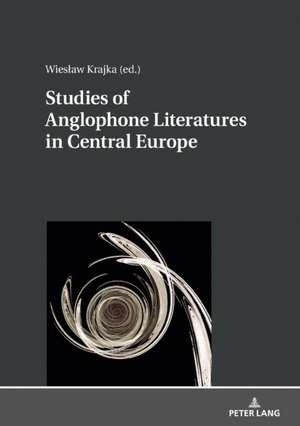Studies of Anglophone Literatures in Central Europe
en Limba Engleză Hardback – 5 feb 2019
This book paints the landscape of major trends and achievements of studies in Anglophone literatures in Poland, the Czech Republic, Slovakia, Romania, Slovenia and Ukraine. The book shows which tendencies in these investigations are common to all these former Communist countries and which are specific to any of them, which ones and to what extent are shared with global research in the field. The material presented covers the periods before WW II, from 1939-45 to the autumn of nations in 1989, and after that caesura, with concentration on the most recent years. The sequence of the essays is from comprehensive surveys of the entire field of investigations through evaluative presentation of some of the main and most influential publications to evaluation of academic system and methods of teaching literatures in English. The surveys are focussed on both the major tendencies and the particular phenomena illustrating them, and combine manifestations of studies in literatures in English with contexts external to them (including political ones). They display a variety and wealth of the issues studied, of the critical approaches, schools and areas of research against the changing canon of English literature in the XX century, especially of contemporary literature.
Preț: 301.56 lei
Nou
57.71€ • 60.03$ • 47.64£
Carte tipărită la comandă
Livrare economică 15-29 aprilie
Specificații
ISBN-10: 3631763530
Pagini: 126
Dimensiuni: 154 x 216 x 15 mm
Greutate: 0.5 kg
Editura: Peter Lang Copyright AG
Notă biografică
Cuprins
Literary Studies at Polish Universities, 1989-2015: British, American and Canadian - English Literary Studies in the Czech Republic - Literature of Great Britain and the United States of America in Contemporary Ukrainian Literary Studies: Scholarly Accomplishments and Pain Points - Literary Studies in English in Slovakia - Managing the Devaluation of English Literature Studies in Romanian Universities - Shakespeare's Plays in Slovenia in the First Half of the Twentieth Century - The Case of Jakob Kelemina
